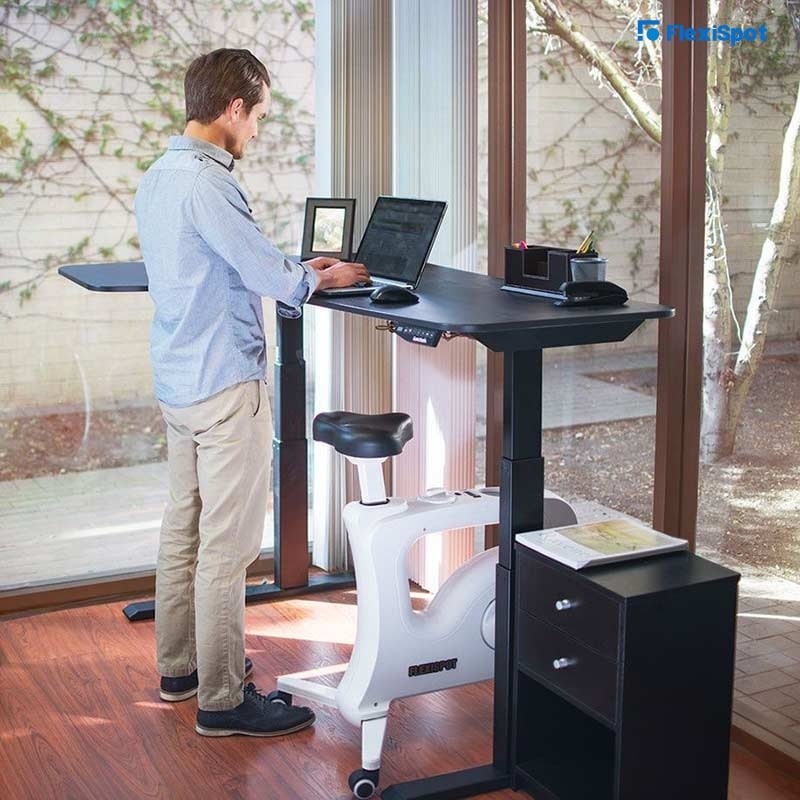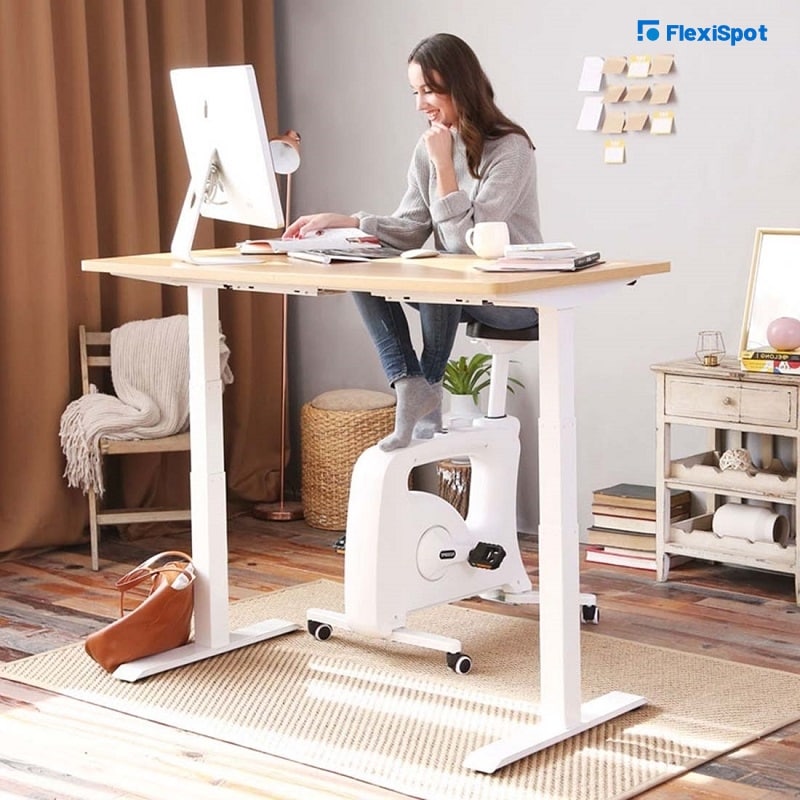Since the year 2020 when the COVID-19 pandemic injected social isolation into our daily lives, millions of people embraced the "new normal" of working from home. Though WFH is a new idea that requires workers to readjust their pattern of working, many people are already familiar with working outside the traditional office setting - a form of remote working.
And that's where the misconception pops up, so the next question we need to answer is if there's any considerable difference between them. Let's find out as we read further.
Why the Sudden Shift From the Traditional Method of Working in Office?
Yes, the pandemic was the last straw that broke the camel's back as far as the demise of the traditional office is concerned. But do you know that many workplaces have started adopting the flexible work-life way before 2020?
This means that the informal and flexible workspaces offer the employees certain advantages that the traditional office does not.
Let's explore some of them:
Informal dress code, atmosphere, and work attitude.
No office politics or hierarchy.
Absence of the corporate stamp.
Enhancing environment.
Workers are happier when they are outside the office.
Contemporary design.
Music offers, art, access to food, and lots more.
So we can agree that the decline in the conventional corporate lifestyle wouldn't have dipped this quick if it had provided all these incentives. A flexible modern lifestyle, which houses both working from home and remote working, also promotes co-working.
It also facilitates deeper interaction between workers and across different organizations. As a result, there's a greater level of collaboration. The deeper bond also leads to a common enterprise that enhances innovative thinking that benefits every worker who's genuinely interested in taking advantage of the latest opportunities.
Through that, you'll be amazed at how this "new life" supports the emergence of a stronger workforce.
What Does Working From Home (WFH) Mean?
As the name loudly suggests, this is when you work outside the confines of your office. That is, within your home. Simply put, working from home is when you work from home. That sounds like a circular definition but you'll soon get it.
It is at your discretion to decide which part of the house you'll like to work from, whether your study, bedroom, kitchen counter, living room, drawing room, or any other place. For many offices, this idea is not a permanent solution. So you need to reach an agreement with your business manager first.
If it's going to be a long-term plan, we'll suggest you capitalize on the flexibility that working from home offers you by setting up an ideal home office. You can also pair the setup with other work-from-home essentials that'll spice up your corner's outlook and fire up your efficiency.
Apart from building a separate workspace for you at home, you need to prepare for possible disturbances. So how do you address such problems? All you need is to draw a clear partition between your personal and business life. And you need to follow it to heart.
We'll also advise that you also invest in reliable office furniture, such as ergonomic office chairs, height-adjustable standing desks, anti-fatigue mats, office lighting, and office supplies, among others. Most importantly, there are various government purchase campaigns and employee support programs for every work-from-home worker.
That's another opportunity you can hop onto to make sure that the challenges associated with this sudden transition don't affect the quality of your work.
Pros of Working From Home
First things first, hope you're aware that not everyone is built to cope with this type of work set-up? Great! That means you need to consider the pros and cons and weigh your options before you finally decide which way to go.
Absence of Commuting
With work from home, you don't have to worry about the rigors of making your way down to the office. Since the entire workload will be done from the comfort of your room, you will also have a great deal of money and time to save.
You can even spend your time on other quality activities that you would not have had the chance to explore if you were to go to work. As a result, your daily stress level will be reduced to the barest minimum and the end product will be improved productivity.
Flexibility
This is one of the biggest advantages of working from home because it gives you a wider level of the ground to work with. You can never feel overwhelmed or under close monitoring to deliver a particular task. After all, the idea is to eliminate every firm of fixed work routines.
All you need to do is stay flexible as much as possible, work at your pace, and do what you love engaging in (hobby) and you'll be glad you are working from home. Can you have time for all these in a traditional workplace setting?
Reduced Distractions and Less Stress
We understand that there are a lot of distractions back home but they're all within your control. But in the office, you're in no position to regulate distractions coming from your superiors, co-workers, or any other work-based distractions.
Working from home is also a lifesaver in terms of controlling your daily stress. Working in an office demands that you deal with quotas, fixed deadlines, toxic bosses, and colleagues, among others. But you're your boss back home, you're free to decide when to pause and take a breather, nap or walk around the house to feel revived.
Cons of Working From Home
If WFH sounds like a nice deal already, why don't you wait and consider the downsides? They might help you make a more informed decision.
Self-discipline
Staying committed to your work on a daily basis demands some levels of motivation and self-discipline. And if you know yourself to be lagging in this aspect, we'll suggest you work on yourself before making a WFH request from your employer. After all, of what purpose is losing focus anytime you set in for work?
Working From Home can be Solitary
If you love having people within your reach now and then, subscribing to this plan might not be entirely ideal for you. At home, you're literally on your own. You can't walk over to your favorite friend's desk and chat for some minutes before resuming your work. So you need to weigh your options and decide for yourself.
Mix-up With Your Business and Personal Life
It's worth mentioning that working from home might get to a point where you're unable to slow down the pace of work. It's very difficult to shut down. And that's where the problem comes in, once you're in the zone, you won't be able to make a clear-cut difference between your life and work.
As a result, you might get overworked and your level of efficiency is left to bear the brunt.
Loss of Living Space
Do you know that WFH requires you to make some sacrifices? For instance, you'll have to give up one of your rooms to set up the home office.
Pretty Difficult to Build Relationships and Develop Trust
Since you're always indoors, there's no chance to connect with your existing friends. And the absence of physical contact might also rob you of the chance of making new friends.
Working Remotely: What Does it Mean?
A few years ago, we would have labeled remote working as somewhat the same as WFH but the development of modern offices and advancements in tech have changed the narrative.
To be a remote worker, you're to work from anywhere apart from the office. It can be working from a subway, your favorite cafe, any shared spot with other remote workers, or a co-working space.
It can even be from home. So we can agree that WFH is restricted to home while a remote worker can work from ANY location, apart from the office of course.
Pros of Remote Working
According to a study conducted by Global Workforce Analytics and Flexjobs, the estimated number of workers in the US as of early 2020 was pegged at 4.7 million. This means that remote working is a very perfect option for your workers.
As a business manager or employer, you can adopt this method to triple your employees' efficiency, save your money, and boost your returns.
But before then, let's run through the advantages:
Improved work-life balance.
Healthier and more active lifestyle.
Increased productivity.
Less carbon footprint and more savings on your part.
More savings for the employers.
Working while traveling and embarking on adventures.
Better time management.
Cons of Remote Working
Pretty Hard to Stay Motivated
While working remotely, there is no supervisor or manager to supervise your performance, keep you on the right e, and encourage you. So chances are that you might be having a hard time accomplishing your set goals.
The most worrisome part is that it worsens owe time. You might fall into the pool of procrastination and a laid-back attitude towards your projects.
Break in Communication
It's very easy to walk up to a colleague at work to discuss some grey areas but such cannot happen while working remotely. All you have to depend on is interaction via video calls and instant messaging apps. Believe it, those ways are not sustainable enough.
As you struggle with this deficiency, the absence of team collaboration might affect the quality of your output.
Management Deficiencies
One of the biggest problems of working remotely is that it raises management concerns. Back in the traditional office, your manager or employer can easily call you up for some mentorship or coaching sessions.
But such is not feasible for remote working since you are all alone developing your skills on how to leverage technologies that will help you manage your team efficiently. You might also have to invest your time and money in the acquisition of project management skills.
Do We Have to Return to the Traditional Workplace?
There's no doubt that our work life will be entirely different in this post-pandemic era when compared with what was obtainable before the global outbreak. And one thread that holds man and life together is that evolution is constant. Therefore, it follows that the corporate industry needs to flow with the present and the future, not with the past.
After all, many people strongly believe that a flexible mode of work is the future. Therefore, as an employee, it is in your best interest and that of your organization to look into more ways through which you can work in an effective, productive, and professional manner.
Apart from that, you also need to have a clear understanding of how the global digital culture operates. Through this, you'll be able to amass the needed skills to become a successful flexible worker who's also an invaluable asset to the company.
Finally to the question, we don't have to return to the conventional workspace. Rather both the business owners and workers need to forge ahead to develop a deeper and more reliable relationship that'll influence the quality of services or goods produced.
Creating the Perfect Remote Working Strategy for Your Company
Now, we've shown you that flexible work-life can mean different things. So you don't have to focus on one side and abandon the others. As a business manager, we'll suggest that you look closely, reflect, and call your workers together to determine the best remote working plan.
You can make it a combo of flex work and remote work, or a merger of work from home and telecommuting. The choice is all yours and your employees. You can also take a moment to ruminate over your company culture, what you represent, and how best you can further satisfy your clients.
That's a viable way of arriving at the right type of remote working. We've also compiled the following considerations to help your workers become a successful and efficient remote workforce. Let's see how it applies to your company.
Collaboration
Teamwork is important in every business setup, so you owe your workers the duty to give them an avenue where they'll be able to thrive. You should look into when they tend to bond with each other. Is it when they're all together at a round table or everybody seems to be independent?
For those who choose to do the remote way, you'll have to coach them on how to continuously stay connected with their counterparts who might be working from different time zones and locations.
For perfect collaboration, as a remote employee, you need to develop a trusted pattern with your team members and cultivate the habit of routine check-ins to confirm if every plan is going as expected. To build camaraderie, we'll also charge you to draw closer to your colleagues and get to know them on a personal level.
Until then, becoming an effective remote worker might be very difficult to achieve, if not impossible.
Open Communication
It's unarguable that video meetings and instant messaging are very common in remote work to stay in touch. But why not design an asynchronous communication that doesn't demand a real-time response?
This will help you and other remote workers to make viable contributions to the state of things at your available time. No rush! However, if you'll be adopting this method, you might not be online when your counterpart sends a message. So the best way out is to ensure remote workers are as direct, succinct, and clear as possible when messaging their teammates.
Adaptability
This is a very important skill you need to possess to successfully manage the ever-changing remote work arena. We'll advise that you learn to work in close alliance with your teammates and familiarize yourself with the latest tools and technologies that'll give your performance the best quality.
Also, you should develop your collaboration skills with a geographically dispersed team, survival skills when your PC or internet connection goes down, and keep a cool work-life balance.
Teamwork
Every remote worker should be mentally and physically fit to work as a member of a team just as working independently. In other words, you need to strike a balance right there. And what makes up teamwork?
We have conflict management, respectfulness, listening ears, communication, and the ability to learn from our colleagues' opinions. Your company can develop a collaborative work environment that gives you access to the relevant digital tools, but you can only maximize those opportunities when you and others have the needed teamwork skills.
Final Words
Piloting a remote team or working remotely can be very challenging when you don't have the needed skills and tools. And among these tools is ergonomic office furniture. This is the time to go some steps higher and rebrand your home office setup.
Click here to explore and invest in the most reliable and ergonomically supportive furniture and other office accessories.






